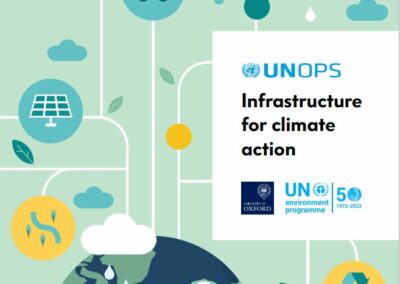The United National Office for Project Services (UNOPS) and ITRC-MISTRAL are working with the Government of Curacao to apply a pioneering evidence-based infrastructure (EBI) approach. Using analysis from ITRC-MISTRAL’s National Infrastructure Systems MODel (NISMOD), Curacao will adapt its infrastructure to be resilient to a range of future changes, including the impacts of climate change and a move away from reliance on fossil fuels.
Zita Jesus-Leito, Minister of Traffic, Transportation and Urban Planning, stated:
Our infrastructure is vital for the functioning of Curacao today and its future success. Therefore, it should be optimised, efficient and resilient. In that context, cross-sectoral long-term planning is essential for maximising the full potential of our island for the benefit of all its people.
At the Conference on Resilient Infrastructure in Curacao (8-9 May 2018), Scott Thacker and Will Usher from ITRC-MISTRAL presented results and recommendations arising from the fast-track analysis of Curacao’s infrastructure. The analysis demonstrated how evidence-based investments and policies in national infrastructure could be used to support long-term sustainable and resilient development against risks such as sea-level rise or heavy rainfall.
The report, ‘Evidence-based infrastructure: Curacao – national infrastructure systems modelling to support sustainable and resilient infrastructure development’ considers Curacao’s options for energy, water, solid waste, wastewater and transport infrastructure. The report highlights a number of ‘quick wins’ that can deliver benefits in the next few years, as well as setting out longer-term options.
The assessment made use of ITRC-MISTRAL’s National Infrastructure Systems MODel (NISMOD), the first time it had been applied in the Caribbean region. The model uses open-source software to simulate the future of national infrastructure systems across multiple sectors. Alongside the report, these open-source data resources are being made available to government, researchers and the private sector in Curacao to ensure that local decision-makers have access to infrastructure assessment capabilities to more effectively support long-term planning processes.
Dr Scott Thacker, who led this work, said “It is great to see ITRC-MISTRAL’s modelling capability applied to real situations to help decision-makers devise practical, sustainable solutions. Curacao is taking an innovative way forward to ensure that its future development is both sustainable and resilient, and we are pleased to be part of that journey.”
The first outputs of the model have been used to develop an understanding of Curacao’s current and future infrastructure needs and to explore options for how those needs can be met. Infrastructure sectors such as wastewater, water, energy or waste have been analysed, highlighting key challenges for the long term. The risks of sea level rise and storm flooding have been assessed on the road network and on critical buildings, such as health or education. Being a first step to implement the EBI framework, the model has the potential to further support decision making in infrastructure in Curacao that can have positive effect on economy, environment, and the broader society.
- Download the report: Evidence-based infrastructure in Curacao (pdf, 11 MB)


